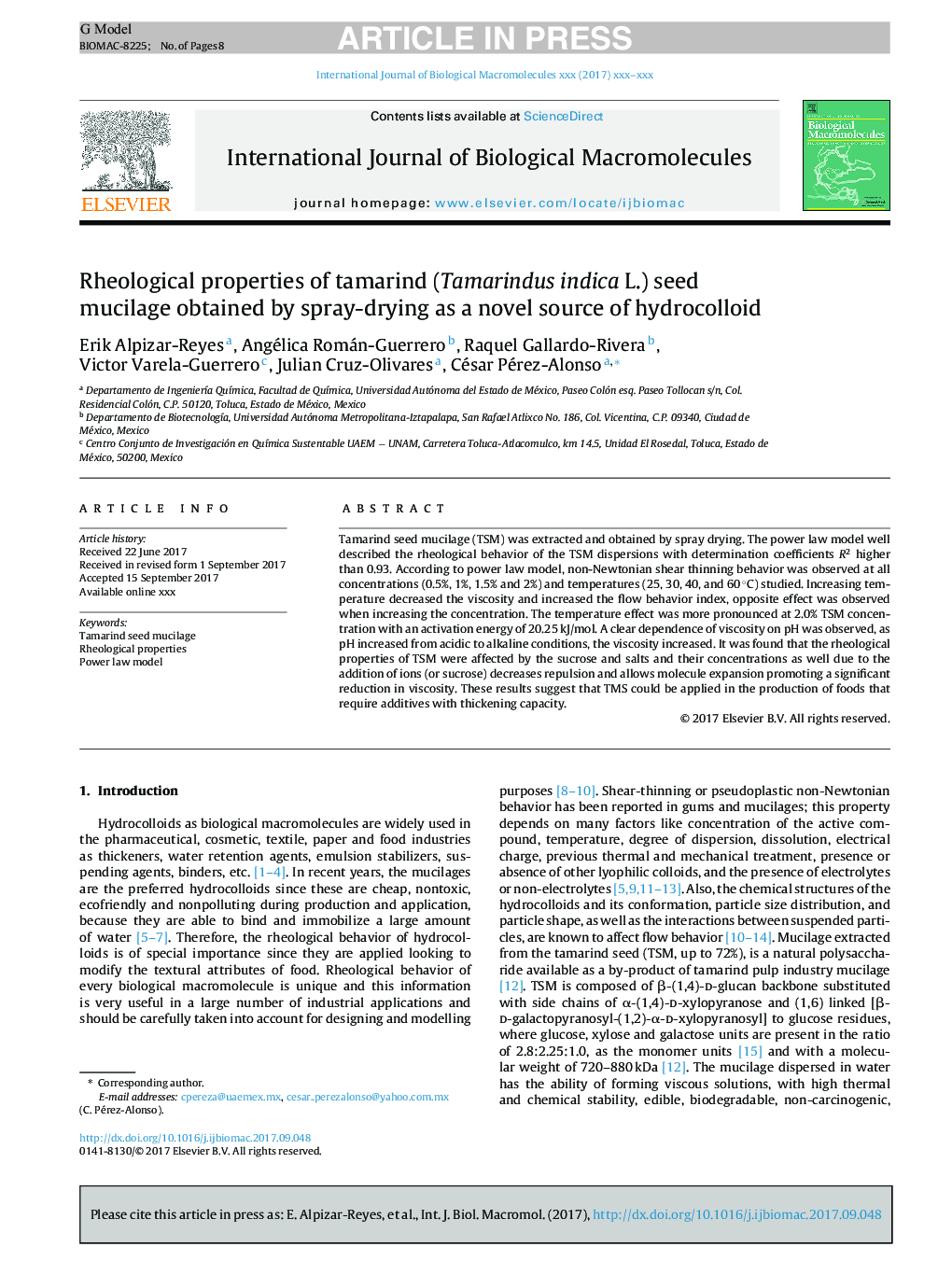| Article ID | Journal | Published Year | Pages | File Type |
|---|---|---|---|---|
| 8329219 | International Journal of Biological Macromolecules | 2018 | 8 Pages |
Abstract
Tamarind seed mucilage (TSM) was extracted and obtained by spray drying. The power law model well described the rheological behavior of the TSM dispersions with determination coefficients R2 higher than 0.93. According to power law model, non-Newtonian shear thinning behavior was observed at all concentrations (0.5%, 1%, 1.5% and 2%) and temperatures (25, 30, 40, and 60 °C) studied. Increasing temperature decreased the viscosity and increased the flow behavior index, opposite effect was observed when increasing the concentration. The temperature effect was more pronounced at 2.0% TSM concentration with an activation energy of 20.25 kJ/mol. A clear dependence of viscosity on pH was observed, as pH increased from acidic to alkaline conditions, the viscosity increased. It was found that the rheological properties of TSM were affected by the sucrose and salts and their concentrations as well due to the addition of ions (or sucrose) decreases repulsion and allows molecule expansion promoting a significant reduction in viscosity. These results suggest that TMS could be applied in the production of foods that require additives with thickening capacity.
Related Topics
Life Sciences
Biochemistry, Genetics and Molecular Biology
Biochemistry
Authors
Erik Alpizar-Reyes, Angélica Román-Guerrero, Raquel Gallardo-Rivera, Victor Varela-Guerrero, Julian Cruz-Olivares, César Pérez-Alonso,
